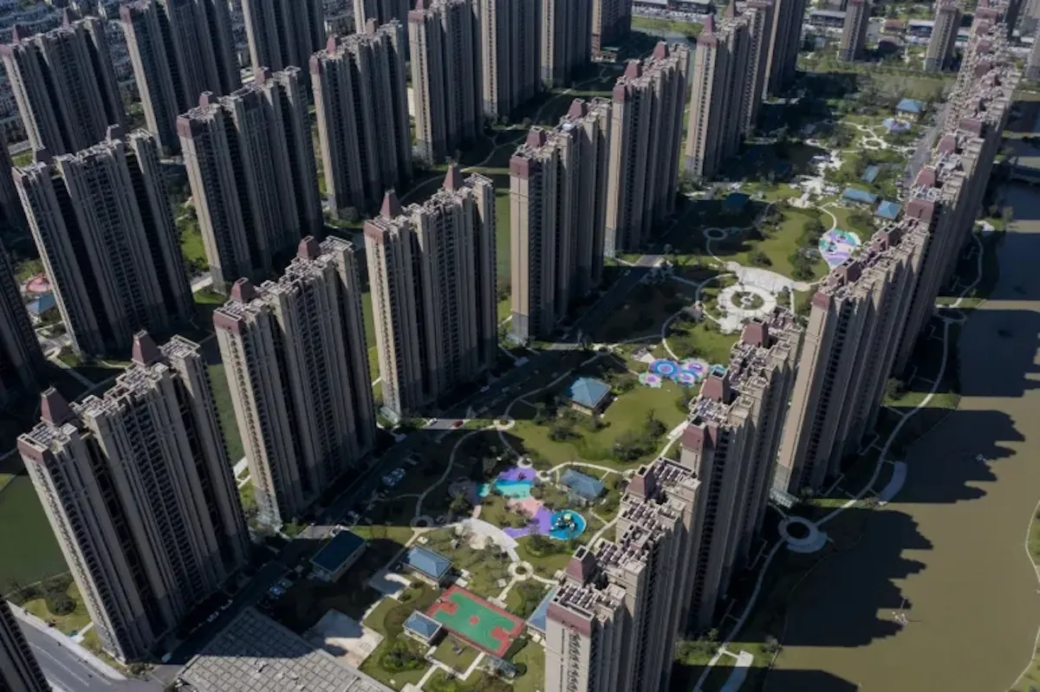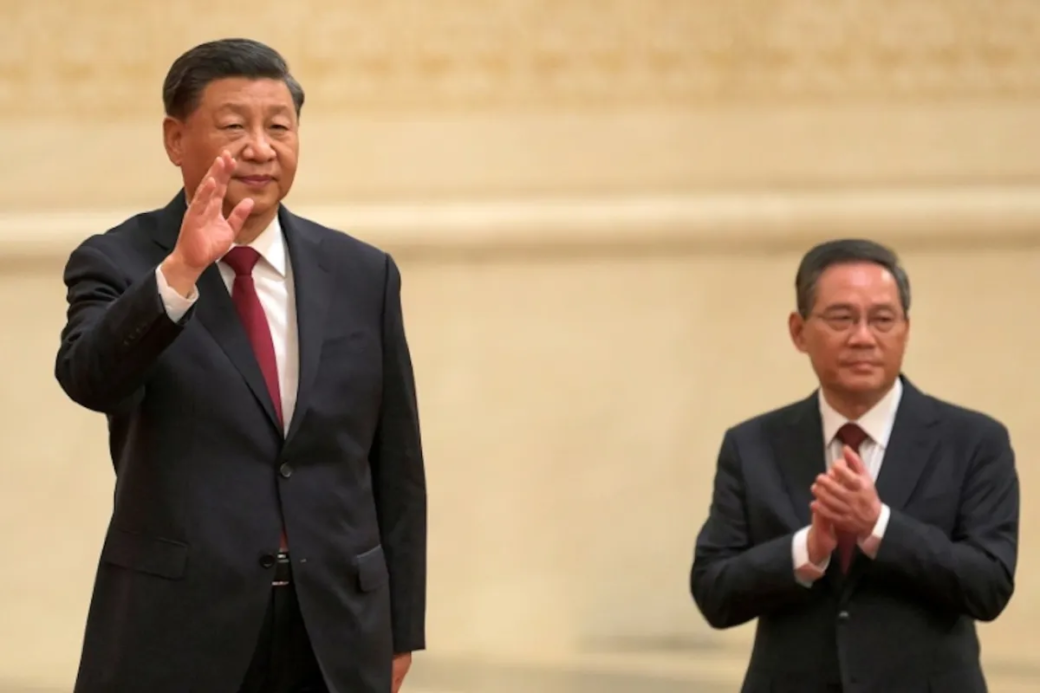Certain investors believe now’s the time to pile back into China shares while others still want to see bolder action from Beijing

“The China equity trade is back.” Or at least so says Société Générale, which reckons Beijing’s recent efforts to fix the property crisis has moved Asia’s biggest economy beyond the “confidence crisis” that dominated China’s market narrative in 2023.
A reasonable view? Given how China’s property stocks last week entered a technical bear market amid worries Beijing isn’t acting urgently or boldly enough to stabilize the sector, the jury is still out.
The US$7 trillion stock market rout reaching from a 2021 peak through January 2024 may be over but extreme volatility in Shanghai and Shenzhen markets continues to give investors pause.
Even so, “the market is starting to gain some confidence that the earnings recession is coming to an end, as the latest earnings season appears to suggest,” says Wei Yao, head of Asia-Pacific research at Société Générale.
“Unlike the revenue growth of 2% – 1% ex-financials – in 2023, the weakest since 2020, the consensus revenue growth estimate of 4% – and 7.5% ex-financials – for this year is closer to the GDP growth forecast and looks plausible, in our view,” Yao says, citing Beijing’s 5% economic growth target.
Others see similar upsides emerging. “We see China’s stocks gaining momentum, especially if stimulus policies meet market expectations,” adds Jonathan Fortun, economist at the Institute of International Finance in Washington DC.
The main driver is growing optimism that Xi Jinping’s government has finally come up with a strategy to stabilize the beleaguered property sector, which historically has generated as much as 25% of GDP.
Recent moves to revive the sector include prodding local state authorities to purchase unsold properties and reducing the amount home buyers need for a deposit.
“This latest set of positive macro data suggests the piecemeal stimulus measures from China’s top policymakers are working to negate the deflationary risk spiral that has been triggered by the significant slowdown inherent in the domestic property market,” says Kelvin Wong, senior analyst at currency broker Oanda.
Logan Wright, economist at Rhodium Group, says “it’s reasonable to expect” that construction activity “will stabilize soon.”
Yet the fact that Chinese developer shares are down more than 20% from a mid-May high suggests investors still think Team Xi has more work to do to restore confidence.
For all the talk of Xi and Premier Li Qiang rolling up their sleeves to boost property, “there hasn’t been a clean-up,” says economist Alicia Garcia-Herrero at Natixis. “This is why China looks more like Japan and not like the US or Spain.”

It’s still an open question whether local governments across China will plunge into a crisis akin to the one that plagued Japanese banks in the 1990s. Beijing’s slow pace of action could mean a “longer, more protracted adjustment,” Garcia-Herrero says.
In a report last week, analysts at Bank of Communications Co estimated that recent policy shifts could boost sales by more than 1 trillion yuan ($138 billion).
The reason investors might take notice, says Tracy Chen, a portfolio manager at Brandywine Global, is that China’s latest “property market rescue package is focused more on risk management than engineering another property boom. It aims to achieve multiple goals, including boosting housing demand, reducing housing inventory and supporting developers.”
Those steps include land buybacks by local governments, which will purchase excess land from developers at “appropriate” prices. Land can be used for affordable rental housing, while funding will come from special bond issuances. The bottom line is that municipalities will be incentivized to buy land amid tight financial situations.
Next, stepped up inventory reduction. Local governments will be emboldened to buy excess housing inventory through local state-owned enterprises and convert it to affordable rental housing. Then will come increased funding for unfinished projects amid relaxed home loan requirements.
These include minimum down payments being lowered by another 5 percentage points to 15% for first homes and to 25% for second homes, both marking record lows. Minimum mortgage interest rate restrictions have also been removed.
“The rescue package is a step toward stabilizing China’s property market, but its success hinges on overcoming significant challenges and reviving households’ confidence for home purchases,” Chen says. “However, the stimulus may fall short again due to the size of the supply problem. The scale, funding and implementation of the inventory purchases are too small and unclear.”
Hence, Chen adds, “the rescue package is not a game-changer yet. Mountains of unsold housing supply need forceful and persevering policies. Policymakers need to go big to revive homebuyers’ confidence. Absent a more material intervention, the magnitude of the property inventory supply problem likely means China’s property sector will be a drag to growth for years to come.”
Raymond Yeung, chief Greater China economist at Australia & New Zealand Banking Group, notes that Team Xi could be “treading a tightrope” if the move to reduce mortgage rates “fails to revive demand.” That’s because a lower downpayment ratio will intensify the risk of negative equity across the industry.
All the more reason for Xi to make even bigger reform moves. As Xi’s policymakers work to deleverage the economy, they face an increasingly precarious balancing act. And as global headwinds intensify, Beijing may come under internal pressure to hit the gas anew on fiscal and monetary stimulus.
“China’s economy is marred by insufficient domestic demand,” says Emily Jin, an analyst at advisory firm Datenna. “For years, analysts have urged Beijing to boost consumption’s role in China’s economy, to little avail. The 5.2% increase in consumer demand in 2023, largely attributed to a low base effect from pandemic consumption levels, may not persist into 2024.”
To be sure, China’s deflation is cheering many bond investors. In early March, yields on 30-year bonds hit a record low of 2.4%. Yet Beijing’s fiscal spending plans – and its debt issuance plans – mean Xi and Li must tread carefully.
China, for example, is selling a record 1 trillion yuan ($138 billion) of ultra-long-term bonds, more than two times the average issuance between 2019 and 2023.
But Beijing still has a ways to go to engineer a sustainable rally in stocks. But recent steps to prod local governments to go on an apartment-buying spree could go a long way toward taming deflationary risks.
The effort “does represent a significant evolution in the government’s response to the property crisis,” says Andrew Batson, an analyst at Gavekal Dragonomics. “The solution isn’t here yet, but the chances of a solution actually arriving are now much higher.”
It’s reasonable, Batson says, to call the plan “an early downpayment on the recent promise of a new approach” to stabilizing a sector that generates a disproportionate amount of China’s economic growth.
Yet with the stock of unsold homes and empty land at their highest levels in years, construction is slowing sharply and default risks are rising among developers – from giant state-owned firms to smaller private entities. Efforts to make China Evergrande Group-like default risks a thing of the past are still a work in progress.

In recent months, the People’s Bank of China has enabled lending facilities to gorge on finished-but-unsold housing, but more arguably needs to be done, analysts say.
As Goldman Sachs’ Lisheng Wang notes, “any game-changing housing easing measures – including those for housing destocking – would likely require significantly more funding than available thus far.”
Ending the crisis, though, will be more about addressing housing oversupply than the amount of liquidity in the system. That means any fix will ultimately require balancing the supply side of the housing market and developers with steps to support the demand side of the economy.
As Batson sees it, a series of failed government initiatives to stabilize real estate have been undermined by three problems.
One, a hyper-focus on the demand rather than the supply side. Two, an unwillingness to provide direct financial support from the central government at sufficient scale. Three, opaque efforts to boost the market, which have limited the positive impact on confidence.
Recent policy pivots “mark a step forward on all three fronts, although these issues have not yet been completely overcome,” Batson says.
The eyes of the world are thus fixed on what Chinese leaders do next. Hints of green shoots aside, global investors remain worried about the deflationary pressures still bearing down on the economy.
The risk is that the PBOC makes the Japan-like mistake of letting deflationary forces fester without sufficiently bold action. Another is that officials in Beijing may be overconfident about the state of global demand.
Many global funds are thus in a trust-but-verify crouch as Beijing announces more stimulus and ramps up manufacturing to revive the economy.
The question is whether “looking forward, the roll-out of policies such as the large-scale equipment upgrade will continue to support demand for the manufacturing sector,” says analyst Xiao Jinchuan at Guangfa Securities Co.
Looking at China’s manufacturing growth, says Jeremy Mark, a senior fellow at the Geoeconomics Center of the Atlantic Council, it’s safe to “assume that much of that expansion is likely to go straight to exports.”
Defeating deflation, though, requires bold moves on the supply side, too. As Xi and Li signal more moves to clean up the property sector, the stock rally China bulls like Société Générale are predicting are for now still outnumbered by the wait-and-see bears.



